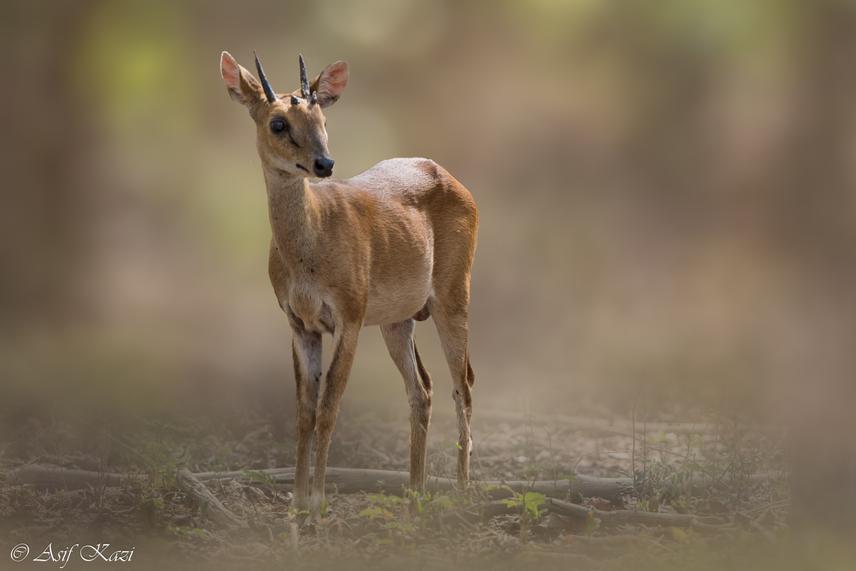Sabina Koirala
The aims of this project are the research and conservation of Four-horned Antelope in Banke National Park by gathering baseline information, raising awareness in communities and building citizen scientist.

©Asif Kazi.
Globally vulnerable species Four-horned Antelope (Tetracerus quadricornis) are listed as “Data Deficient” species in the National Red List of threatened species of Nepal. Habitat and ecology of the species are unknown from its distribution range and no robust estimate of the global population is available. Likewise, very little information is available about the FHA of Nepal.
Banke National Park (BaNP) is a newly established national park (Established in 2010) in Nepal, which lies in the mid-western low-land of the country. The park is with an area of 550 sq. km and its buffer zones with 343 sq. km. The crop depredation by the ungulates and in response retaliation killing is frequently heard in buffer zones, as about 90% of the economy of the population living in the buffer zone depends on agriculture. But no any study has been conducted yet in BaNP to address the crop loss by the wild animals and the conservation of such vulnerable species. Hence, we believe that there is a constant pressure of people on the park which ultimately affect the wildlife including FHA in BaNP.
Hence, this research project aims to:
• Collect baseline information on the distribution, habitat preference, conservation threats and human-FHA conflict by plot analysis on the national park and buffer zones.
• Build capacity of local people and park staffs and evolve them as citizen scientists on surveying, monitoring and conserving the species.
• Overcome existing conservation threats of FHA by increasing local people’s knowledge about the importance of conserving FHA in BaNP and its buffer zones by performing school outreach and community awareness programs.
• Aware vehicle drivers about the ecological importance of wild mammals including FHA to reduce the potential road killing of the animals.
As the distribution of FHA is restricted to only four protected areas of Nepal including BaNP, research outcomes of the species in this national park are of major significance not only for this protected area but for its nationwide and global level conservation too. Capacity building of park staffs helps for its long-term management and monitoring and likewise, community empowerment by making them citizen scientist is crucial for sustainable conservation of the focal species. Similarly, the awareness activities play a key role to reduce potential threats to the species and its habitat.